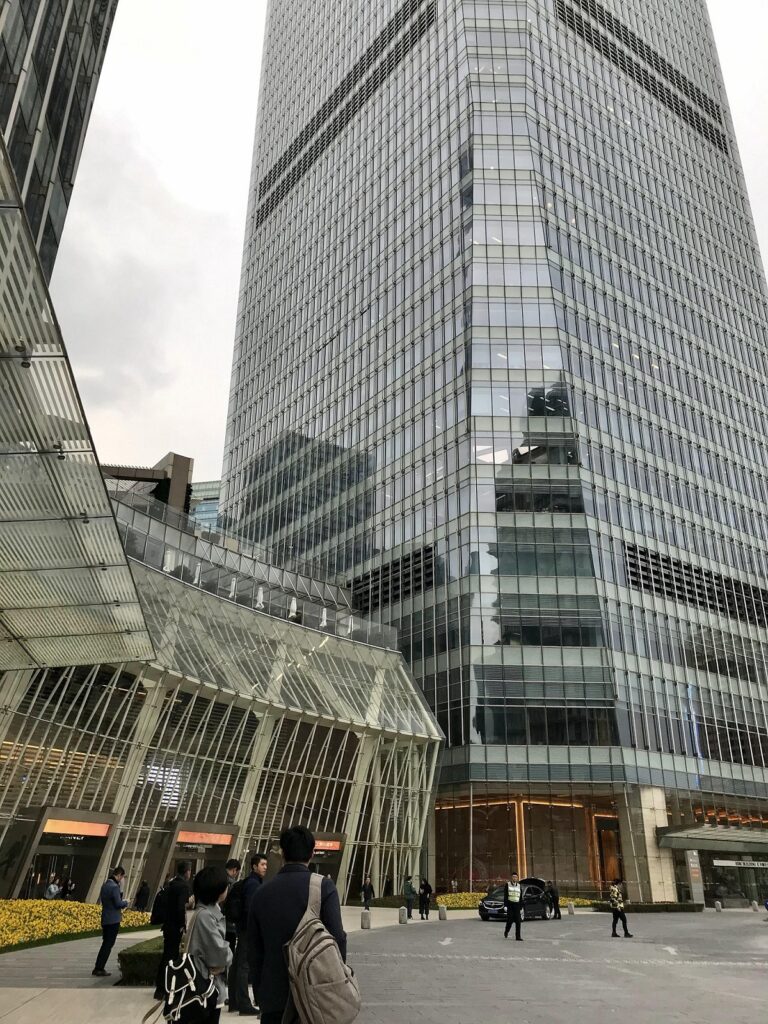A new paper by Lawrence J. Liu

I emerged from the taxi on a Sunday afternoon and peered up at the skyscrapers that dominate Beijing’s Guomao district. After finding the appropriate gaolou and taking the elevator up to the law firm’s upper floors, one of Mr. Wang’s* associates came out to greet me. Although the offices were largely empty, Mr. Wang’s corner was bustling with activity. Mr. Wang and I spoke for about half an hour before he asked if I would like to continue our conversation over lunch. I agreed, Mr. Wang grabbed a bottle of wine from his fridge, and we went out to eat.
During lunch, we continued our discussion of Mr. Wang’s cross-border legal experiences. He earned his initial degrees from Chinese universities before studying abroad and earning an additional set of European credentials. He returned to China to work at a domestic law firm, where he now specializes in representing Chinese mining companies pursuing projects in Africa. In addition to taking pride in his foreign training, in his foreign-language skills, and in the one foreign-born non-Chinese associate on his team, Mr. Wang is also very proud of China’s outbound development efforts. He criticized the negative portrayals of the Belt and Road Initiative (BRI) outside of China, noted that “Western” countries were hypocritical for celebrating their own international work while casting aspersions on China’s, and he applauded Chinese companies’ willingness to take risks that foreign companies no longer take.
Interest abounds in whether China’s outbound ambitions are changing the rules of the international legal order. Many have adopted an international-relations lens that focuses on state-to-state dynamics. This interest in the forest instead of the trees is not incorrect, but it shifts attention away from the sources of the norms that would underlie any potential new order—such as the Chinese lawyers who are intimately involved in the day-to-day work of initiatives like the BRI. Interviews with Mr. Wang and others reflect the complex role played by Chinese lawyers that sit at the boundary of two competing scripts. From one perspective, many are “Western”-trained and provide cross-border legal services developed and spread by “Western” states. From another, lawyers like Mr. Wang are encouraged by the Chinese government to serve on the frontlines of its international development efforts.
In previous work, I have emphasized the need for scholars to recognize variation within China’s legal profession and to examine the ways in which the state may rely on “state-adjacent” lawyers as citizen-partners in governance. “The Rules of the (Belt and) Road: How Lawyers Participate in China’s Outbound Investment and Infrastructure Initiatives” takes up these calls by focusing on another slice of the legal profession that is involved in state-led policy efforts: the 84 Chinese lawyers who have been identified by the All China Lawyers Association (ACLA) as “BRI and Cross-Border Legal Experts.” My research suggests that the BRI and Cross-Border Legal Expert is a highly educated male with extensive foreign experiences as well as strong ties to the state and the Chinese Communist Party.
To obtain a deeper understanding of these lawyers’ views and work, I also interviewed eleven experts or their associates in Beijing and Shanghai. I document how BRI and Cross-Border Legal Experts draw on knowledge buckets that highlight their familiarity with transnational best practices. At the same time, these Experts recognize and help shape the political context surrounding their work. Though most BRI and Cross-Border Legal Experts naturally became involved in BRI projects as their clients’ sights shifted abroad, many (like Mr. Wang) want to see the BRI succeed, even as they also recognize the need for continued policy reforms.
As China continues its global rise, will Chinese lawyers’ stance vis-à-vis the status quo become more subversive than complementary? Perhaps, though I would argue that it is still too early to say. Ongoing work should continue to monitor these dynamics by adopting a similar bottom-up approach. If and when China’s BRI lawyers begin to prioritize Chinese state scripts over existing norms of transnational practice, this should worry those who are committed to the “Western”-led international order. Until then, we should remain attentive to the words and actions of on-the-ground actors like China’s BRI and Cross-Border Legal Experts, those that make state policy a reality.
Find Lawrence Liu‘s paper here.
Lawrence J. Liu is a PhD student in the Jurisprudence and Social Policy Program at Berkeley Law as well as a JD candidate at Yale Law School. His research interests are in administrative law and regulatory politics, law and globalization, the legal profession, and state-society relations, with a focus on contemporary China.
* Mr. Wang is a pseudonym for one of my interviewees in Beijing.
